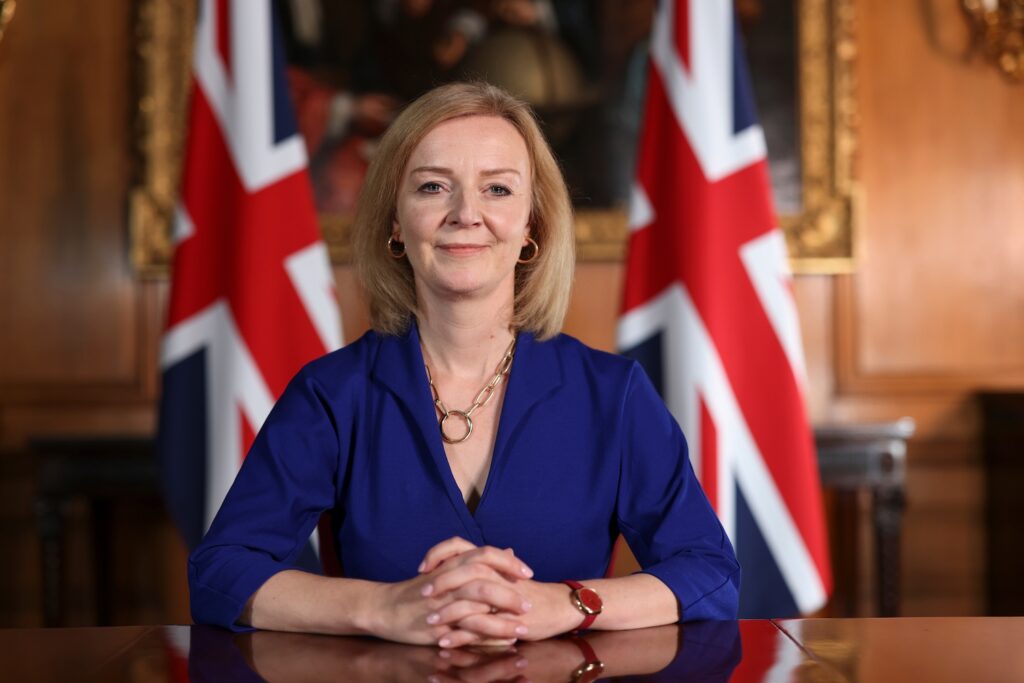Industry responds as Liz Truss becomes UK’s new PM
6th September 2022
Liz Truss has officially become the UK Prime Minister today after meeting the Queen at Balmoral, having defeated Rishi Sunak in the leadership race.
Having won the leadership race with 57% of the vote, Liz Truss is thought to be considering a freeze on energy bills – a plan to help consumers is expected to be released on Thursday.
While Ms Truss has not yet announced her cabinet, it’s thought business secretary Kwasi Kwarteng will be Chancellor; education secretary James Cleverly will be foreign secretary; and Suella Braverman is pipped to be home secretary.
Responding to the news, the National Sheep Association stressed the importance of continuity and consistency in an increasingly turbulent atmosphere for food and farming.
Chief executive Phil Stocker said: “The political turmoil unfolding over the past months came at a time of significant volatility across the farming industry with rising input costs, changes to farming policy and the rollout of future farming schemes. It is reassuring that so far the secretary of state and farming minister are still in post but disruption to agriculture must be kept to a minimum.
“The current political landscape around the world means that it is essential to have a united and stable government that isn’t distracted from its task and can embed food and farming policies that span beyond parliamentary terms.”
Liz Truss has previously committed to making British farmers more competitive, ‘freeing them to grow more sustainable and high-quality British food, to enhance the nation’s food security’.
Specifically, she has committed to cutting red tape and making it easier for farmers to access labour, with a short-term expansion of the Seasonal Worker Scheme, whilst working to address longer-term skills shortages and promote labour saving technologies.
“I welcome comments made by Liz Truss recognising the importance of farming and food production, and her intention to protect agricultural land from non-food producing activities,” Mr Stocker added.
“I also welcome her ambition to reduce red tape for farmers – although many before her have made similar commitments that have not been realised.”
However, he said the NSA “will be keeping a close eye on the direction of travel with trade”, given that the former secretary of state for foreign affairs was the “architect” of the recent Australia and New Zealand trade deals, which have been widely concluded to be detrimental to British farmers.
Meanwhile NFU Scotland president Martin Kennedy urged the new PM to immediately address the brutal ‘here and now’ facing farming and food production – whilst delivering an unequivocable commitment to the importance of UK food security.
“Unsustainable costs around the likes of electricity and fertiliser are creating a crisis of confidence around food production that Government must tackle as a priority and set the conditions for a thriving farming sector that sees shelves stocked with nutritious, sustainably produced, and affordable British food. That is what the public expect.”
Supporting domestic production and its standards requires a “change of direction” and industry engagement on trade policy, he added. “Rather than agriculture being used as a pawn, we need an approach to trade policy that is fair and an agricultural policy that has production at its heart.”
He called for a long-term commitment to invest in farming from UK government.
NFU’s president Minette Batters added: “I would like to welcome Liz Truss as the new Prime Minister and I look forward to working with her and her government on its priorities for British food and farming.
“British farmers are critically important in providing the nation with a supply of home-grown food and it’s essential that British farming has a vibrant and sustainable future, particularly as it moves into a new domestic agricultural policy and continues to grapple with the rising costs facing all farm businesses.”
The Country Land and Business Association president Mark Tufnell criticised the lack of ambition for the rural economy in previous Prime Ministers – and warned that the party risks losing the hearts and minds of 12 million voters.
“Years of neglect have led to an 18% productivity gap between the rural economy and the national average. Closing this gap would add £43bn to UK GVA (Gross Value Added).
“A new £110m support package announced this weekend to support rural businesses was a welcome start. This funding will kick-start the green shoots of recovery for the rural economy. Whilst this announcement, made in the Government’s ‘Delivering for Rural England’ report, is a good start, it does not fully address the challenges faced by rural businesses.”
He added: “As PM, Liz Truss must go for growth, laying out in detail her plans to deliver genuine planning reform, full connectivity, a simpler tax system for diversified businesses – and a Whitehall shake up to encourage cross-departmental cooperation. Otherwise, her party risks losing the hearts and minds of 12 million rural voters.”

